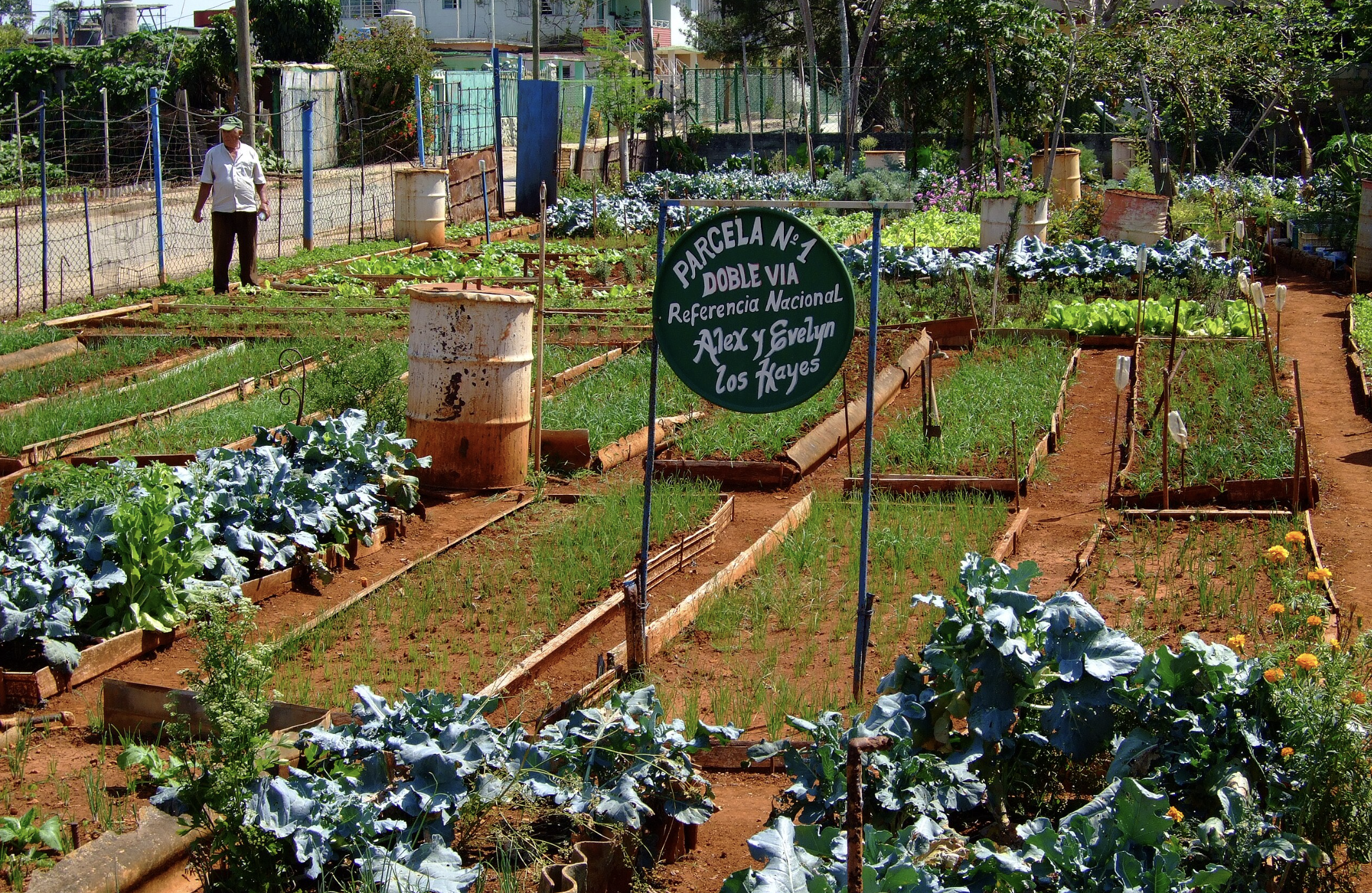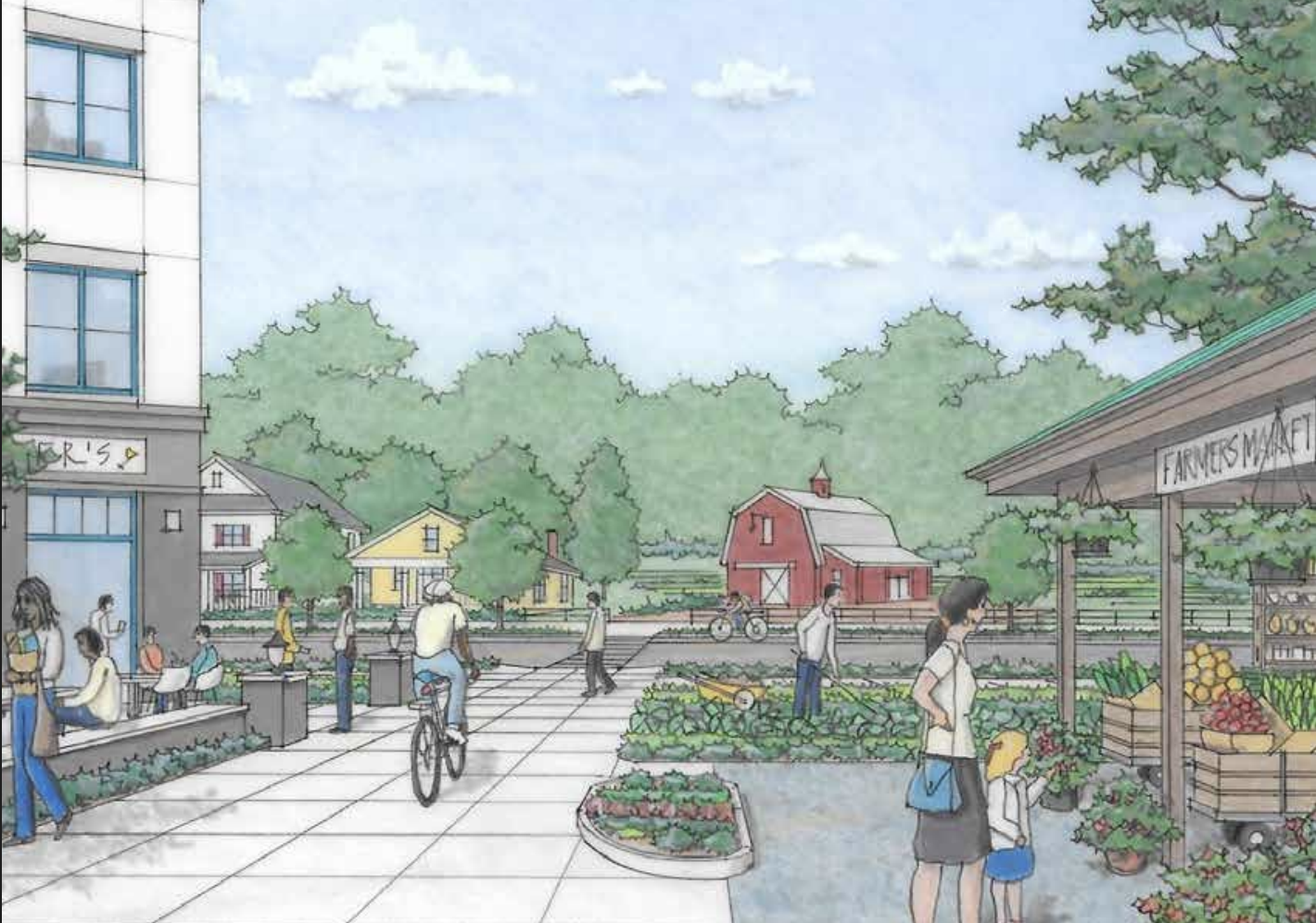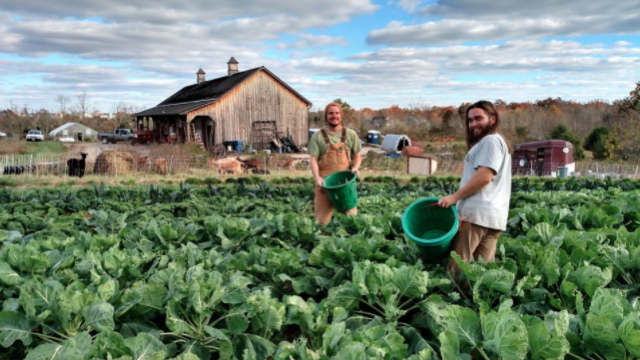
What is an Agrihood?
An agrihood is a neighborhood designed around a farm or community garden. The Urban Land Institute (ULI) defines them as single-family, multi-family, or mixed-use communities built with food production at the center. Today there are more than 90 agrihoods across 27 states, and the number is growing fast.
Why Agrihoods Matter
ULI’s report, Agrihoods: Cultivating Best Practices, draws on insights from U.S. experts in planning, development, and operations, including farmers, developers, landscape architects, and nonprofit leaders. Their work shows how agrihoods can maximize health, sustainability, social equity, and economic potential, offering benefits to residents, surrounding communities, and watersheds. The following are some key benefits:
Health & Connection: A community farm can anchor a neighborhood, with programs and education that build multi-generational ties. Farms also give residents access to fresh produce, improve health outcomes, and strengthen the local economy by keeping food dollars in the community and providing jobs for farmers.
Local Economy: Growing and selling food locally keeps food dollars in the community and provides jobs for farmers. Young farmers often struggle to find affordable land near urban markets. Agrihoods address this by providing farmers with a market and community. Demand is rising—farmers’ markets have grown 395% since 1994, organic sales 10% annually since 2000—and homes near farms and open spaces sell for 15–30% more.
Land Stewardship: Clustering homes around farms conserves productive land and natural areas while limiting sprawl and impervious surfaces. This is especially critical in rural areas near urban centers, like Dickson County. Our shared goal with the landowners is to conserve and sustainably farm a site that has been in their family for three generations.
Burns Village & Farm’s Agrihood Vision
Burns Village & Farm is creating Tennessee’s first cohousing community with a working farm. In partnership with the family who has stewarded this land for three generations, we intend to build a neighborhood where people and food grow side by side. By conserving farmland, supporting sustainable agriculture, and weaving food production into daily life, we’re shaping a community rooted in health, connection, and resilience. We believe that building our community adjacent to land that is suitable for sustainable agriculture will enhance the quality of life and market value of our neighborhood.
Planning, Development, and Operations
As a central community feature, a farm requires both upfront investment and ongoing operational support. These costs can be balanced through food sales, events, and other revenue streams. By integrating a farm into the cohousing community, Burns Village & Farm offers residents, realtors, and decision-makers a direct connection to both the process and products of the farm. This connection creates lasting value, fosters equitable economic growth, strengthens environmental sustainability, and supports public health. Together, our community will explore and decide on the best operating model for our agrihood.
All that said, you don't have to be a farmer to live here. Residents can participate as much or as little as they want. We all find our places here and contribute what we feel is most valuable.










